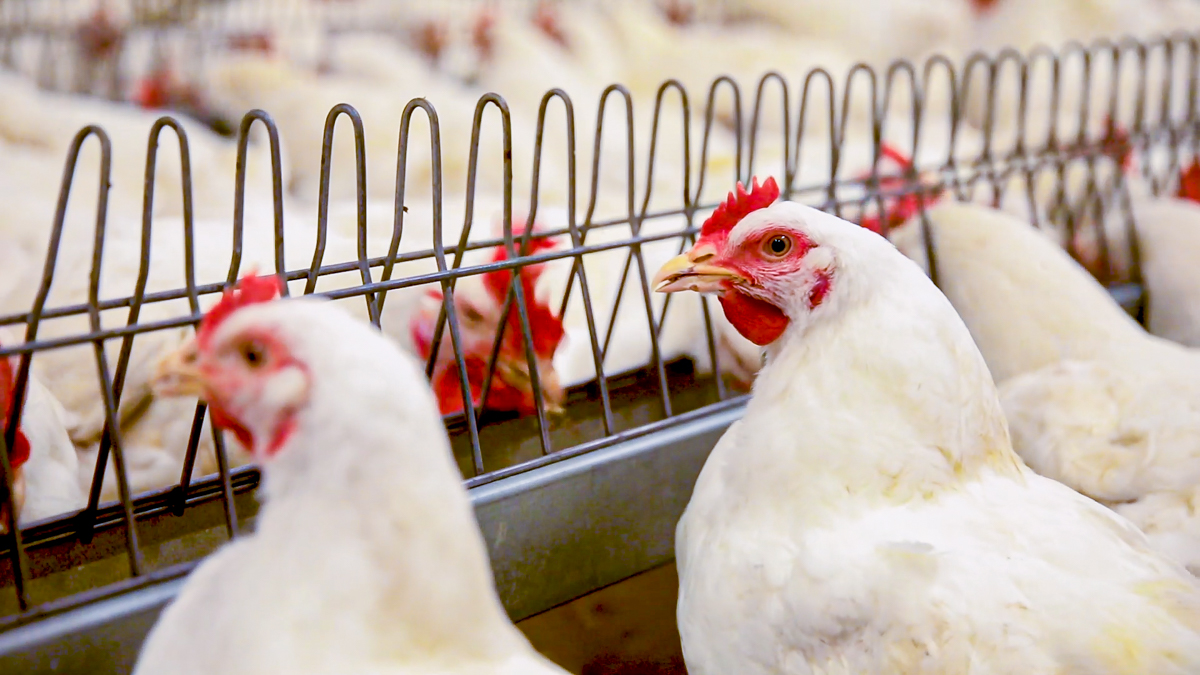A total of 18 flocks have been affected across the region since the first case was reported on May 4.
The figure is up one since June 8, meaning there has been one new flock infection confirmed in the last week. Estimates suggest approximately 270,000 birds are present on the affected farms. However, there is no figure for the total number infected. Prior to the current spate of infections, the last recorded outbreak of ILT in Northern Ireland was in 2013. Neal Garland, DAERA's director of animal health and welfare policy division, explained that while ILT was a "common disease" notifiable in NI and ROI, it is not notifiable in GB or the EU. Garland said that because ILT was considered to be an "endemic production disease", the industry had traditionally taken responsibility for treatment and eradication efforts. The disease is suspected to have first taken hold in backyard flocks where biosecurity is typically much lower. "It is important to note ILT is common in backyard flocks but it is not normally present in commercial farms due to good biosecurity practices and vaccination controls in breeding stock," Garland told the committee. "...The most recent outbreaks have affected different sectors, including egg, meat and breeding flocks, with the majority affected sites in Co. Tyrone and two in Co. Armagh. Unlike in cases of Avian influenza, vaccination for ILT is both permitted and encouraged, and thankfully, the majority of birds infected with ILT will recover and become productive again within weeks of an outbreak being recorded."Is ILT vaccination possible?
Typically breeding flocks are vaccinated. However, due to their shorter lives, broiler flocks are often not. An added complication is that, as a form of herpes virus, once the birds are infected they will remain latently infected and can reproduce the virus again under periods of stress. Garland stated there were no public health concerns with ILT and it cannot pass from poultry to humans. However, he explained that regardless of this, clinically infected birds would not enter the food chain because they would not satisfy the strict inspection controls, which require all animals to be healthy prior to slaughter.Steps forward
"Considering this, and that ILT is endemic production disease, which with industry has traditionally taken the lead with regards to control and eradication, the department, as part of a long-standing policy, will support and advise the industry but does not plan at this stage to take direct action or impose restrictions on the infected flocks," he said.Companies may decide, however, to take direct action and proceed to cull infected flocks as a commercial decision. In relation to trade, it should be noted, that if DAERA were to impose restrictions then there would be knock-on restrictions for inter-community trade with the EU. Trade with the EU requires freedom from animal health restrictions.Gemma Daly, senior principal veterinary officer at the department, said the industry had been "very proactive" in seeking solutions, such as voluntarily implementing different management systems for litter in zones around the infected farms. However, divisional veterinary officer Ignatius McKeown explained ILT had been "quite a difficult disease to follow" in terms of its spread. "It's quite difficult to determine the method of spread," he said. "The first flocks affected were in close proximity of each other so there was some evidence of potentially a wind-borne spread of the virus," Daly said. "But because it is spreading more we do think there are other elements that are adding to the spread of disease, which includes the movement of litter."

